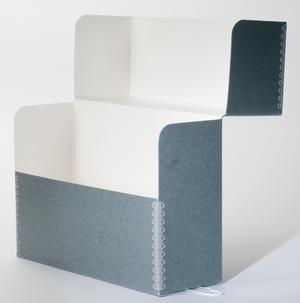- Contact Us
- Emergency Information
- Facility Rental
- Jobs
- Site Map
- Site Policies
- Web Accessibility
- Web Privacy
- © Harry Ransom Center 2025

SIGNATURES
Identified individuals are represented by a biographical sketch, a list of connections to other signatures, and, in most cases, an artifact from the Ransom Centers collections. Help us identify more signatures by submitting your suggested identification.
X
X
THE DOOR
 Location on door: front, panel 2
Location on door: front, panel 2
JOHN COURNOS
Kiev-born novelist, translator, and poet John Cournos (1881-1966) earned the respect of critics, but never achieved popular or financial success. When Cournos immigrated to Philadelphia at age ten, he knew no English. Amazingly, however, he moved from working in a knitting mill at age thirteen to working at the Philadelphia Record, first as an office boy, then as a reporter, and finally as an assistant Sunday editor by the time he moved to London in 1912. In England, Cournos launched his literary career, publishing seven novels, including an autobiographical trilogy about a Russian Jewish immigrant—The Mask (1919), The Wall (1921), and Babel (1922). He also published a volume of poetry, In Exile (1923), and translations of Russian works. Though Cournos visited the United States in 1924, he did not return permanently with his family until 1931. In financial distress during the Depression, Cournos began selling the letters written to him by famous friends such as Ezra Pound, Robert Frost, and D. H. Lawrence, and turned to writing reviews and criticism for the New York Times and the New York Sun.

A Letter from John Cournos to F. S. Flint, 22 February 1917
While in London, John Cournos interacted with many of the figures associated with Imagism. A prose poem of his appeared in the first Imagist collection, Des Imagistes (1914), and two additional poems were collected in Richard Aldington's Imagist Anthology (1930). In this letter to Flint, a poet who had fallen out with Ezra Pound over the direction of Imagism, Cournos attempts to dissuade his friend from complaining about Pound in the little magazine the Egoist. Cournos warns, "To have anything to do with E. P. in a personal way is to step in a heap of dog's dung. You'll never get your boots quite clean of it afterward."

